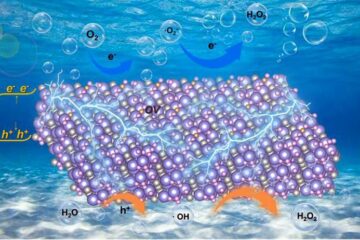Maize: It’s in the Genes

Producing high-yield maize crops using sustainable methods is challenging, as varieties need to be developed quickly and efficiently to combat the changing climate and the increasing world demand for food.
Scientists at theInternational Maize and Wheat Improvement Center, the China Agricultural University,and the USDA Agricultureal Research Service have reviewed state-of-the-art association mapping ofmaize, and the factors that will allow for the maximum impact of this new tool in gene discovery studies and practical maizeimprovement programs.
“Association mapping remains complementary to, rather than a replacement for, linkage mapping and other gene identification and validation techniques. The integration of linkage mapping and association mapping approaches offers substantial opportunity to resolve the individual constraints of each approach while synergizing their respective strengths,” says Jianbing Yan, one of the study’s authors.
Yan and other researchers have compiled and accounted for all known published literature on the topic and can illustrate the conditions that would promote association mapping and allow improved corn varieties to efficiently reach farmers across the globe. Association mapping can identify the genes needed to increase crop yields without the need to increase irrigation or the use of fungicides.
Research is ongoing at these institutions to apply the results of other challenges food production faces like improved nutrition, grain yield, drought tolerance, and resistance to toxic fungal pathogens. The full review paper appears in the March-April 2011 issue of Crop Science. The study was funded by Bill and Melinda Gates Foundation, and the National Hitech Research and Development Program of China.
The full article is available for no charge for 30 days following the date of this summary. View the abstract at www.crops.org/publications/cs/abstracts/51/2/433.
Crop Science is the flagship journal of the Crop Science Society of America. Original research is peer-reviewed and published in this highly cited journal. It also contains invited review and interpretation articles and perspectives that offer insight and commentary on recent advances in crop science. For more information, visit www.crops.org/publications/cs
The Crop Science Society of America (CSSA), founded in 1955, is an international scientific society comprised of 6,000+ members with its headquarters in Madison, WI. Members advance the discipline of crop science by acquiring and disseminating information about crop breeding and genetics; crop physiology; crop ecology, management, and quality; seed physiology, production, and technology; turfgrass science; forage and grazinglands; genomics, molecular genetics, and biotechnology; and biomedical and enhanced plants.
CSSA fosters the transfer of knowledge through an array of programs and services, including publications, meetings, career services, and science policy initiatives. for more information, visit www.crops.org
Media Contact
More Information:
http://www.crops.orgAll latest news from the category: Agricultural and Forestry Science
Newest articles

New SPECT/CT technique shows impressive biomarker identification
…offers increased access for prostate cancer patients. A novel SPECT/CT acquisition method can accurately detect radiopharmaceutical biodistribution in a convenient manner for prostate cancer patients, opening the door for more…

How 3D printers can give robots a soft touch
Soft skin coverings and touch sensors have emerged as a promising feature for robots that are both safer and more intuitive for human interaction, but they are expensive and difficult…

Oxygen vacancies mediated ultrathin Bi4O5Br2 nanosheets
… as efficient piezocatalyst for synthesis of H2O2 from pure water. As an important chemical raw material, hydrogen peroxide (H2O2) is widely applied in various aspects of industry and life….





















